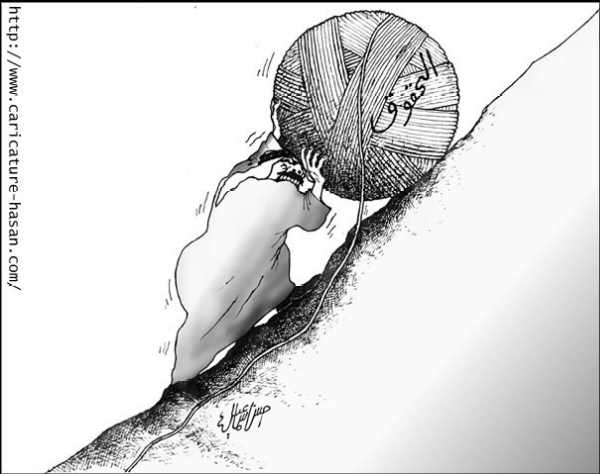
the myth of sisyphus
The gods had condemned
Sisyphus to ceaselessly rolling a rock to the top of a
mountain, whence the stone would fall back of its own
weight.....If one believes Homer, Sisyphus was the wisest
and most prudent of mortals. According to another
tradition, however, he was disposed to practise the
profession of highwayman. I see no contradiction in this.
Opinions differ as to why he became the futile labourer
of the underworld. To begin with he is accused of a
certain levity in regard the gods. He stole their
secrets. Aegina the daughter of Aesopus was carried off
by Jupiter. The father was shocked by that disappearance
and complained to Sisyphus. He, who knew of the
abduction, offered to tell about it on condition that
Aesopus would give water to the citadel of Corinth. To
the celestial thunderbolts he preferred the benediction
of water....Sisyphus, proletarian of the gods, powerless
and rebellious, knows the whole extent of his wretched
condition; it is what he thinks of during his descent.
The lucidity that was to constitute his torture at the
same time crowns his victory. There is no fate that
cannot be surmounted by scorn.
For me the Myth of
Sisyphus marks the beginning of an idea.... It attempts
to resolve the problem of suicide......without the aid of
eternal values which, temporarily perhaps, are absent or
contorted in contemporary life. The fundamental subject
of the Myth of Sisyphus is this: it is legitimate and
necessary to wonder whether life has a meaning; therefore
it is legitimate to meet the problem of suicide face to
face..... The answer, underlying and appearing through
the paradoxes which cover it, is this: even if one does
not believe in God, suicide is not legitimate....... The
Myth of Sisyphus poses mortal problems, it sums itself up
for me as a lucid invitation to live and to create, in
the very midst of the desert.
Albert Camus.
|

